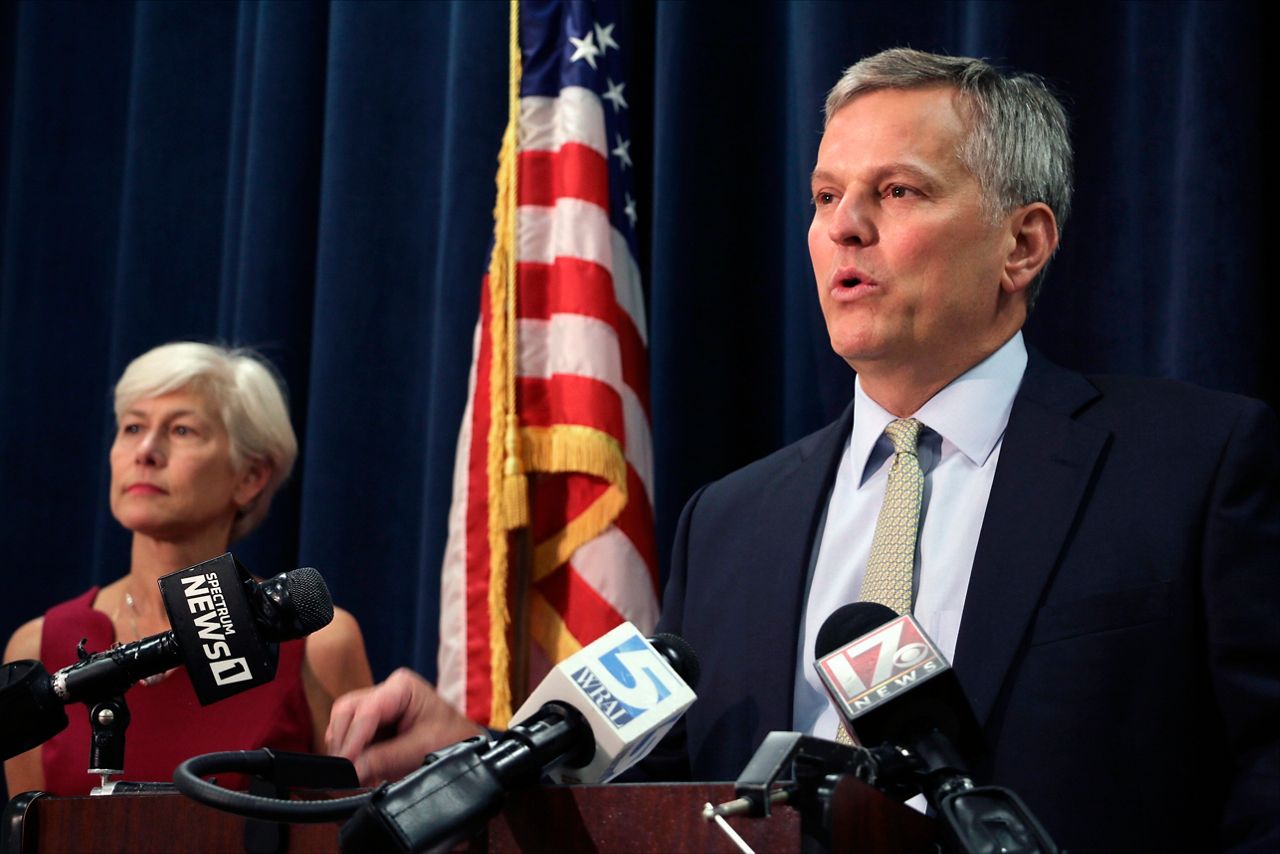A 2016 amendment to state abortion law, passed by the North Carolina General Assembly, would have banned abortion after 20 weeks of pregnancy. But because of the Supreme Court’s ruling in Roe v. Wade legalizing abortion, a federal judge found the North Carolina law unconstitutional.
Last year an appeals court upheld the 2019 decision on North Carolina’s law. Now that the Supreme Court has overturned the 1973 ruling in Roe v. Wade, a judge is now taking a new look at the North Carolina law.
Lawyers for the plaintiffs in the case, including Planned Parenthood South Atlantic and doctors, say there is no reason to reopen the case since neither they, nor the state Attorney General's Office have asked for the court to reverse the decision.
GOP leaders in the General Assembly have asked the court to allow them to file a motion to allow the law to go into effect.
“It appears the injunctive relief granted in this case may now be contrary to law,” Judge William Osteen, the federal judge for the MIddle District of North Carolina overseeing the case, said in an order issued last month.
"Lifting the injunction would create apprehension and uncertainty among providers about what kind of patient care they can legally provide in North Carolina without risk of criminal liability, especially under the extraordinarily narrow emergency exception," Planned Parenthood and the other plaintiffs said in their latest court filing.
"Reinstating the 20-week ban would criminalize the provision of medical care to people suffering miscarriages and to victims of rape and incest; it would threaten the lives of those who will experience grave physical and mental pain and suffering if forced to carry a pregnancy and to give birth," lawyers for the plaintiffs wrote.
The North Carolina Attorney General's Office, representing the defendants in the case, agreed. The Attorney General himself recused himself in the case, but lawyers in his office argued the court should not revisit the ruling.
"Other states have acted rapidly to severely restrict or eliminate access to abortion services," the Attorney General's Office said. "Lifting or modifying the injunction in these circumstances would likely further confuse the public about the legality and availability of abortion services in North Carolina, and the risk of criminal prosecution to themselves and their healthcare providers."
"For these reasons, and because no defendant with direct enforcement authority intends to take any action that would be affected by any action by this Court, Defendants are not now seeking lifting or modification of the injunction," according to a brief filed by the Attorney General's office late Monday.
"Lifting the injunction, after nearly fifty years in which the existence of a constitutional right to abortion was settled law, will inevitably create a substantial risk of further public confusion," the defendants said.
The Supreme Court’s ruling issued in June gave the question of abortion rights to state lawmakers, allowing state legislators to restrict access to abortion. A number of states, including North Carolina’s neighbors to the south and west, moved quickly to further restrict access to abortion.
North Carolina Senate President Pro Tem Phil Berger and House Speaker Tim Moore, the two top Republicans in the General Assembly, are asking the federal judge to reverse the decision in the case.
“The court should exercise its inherent power to vacate the injunction and judgment, following the Supreme Court’s emphatic instruction to return the issue of abortion to the ‘people and their elected representatives,’” Moore and Berger said in a court filing last month.
GOP leaders in the General Assembly also faulted North Carolina Attorney General Josh Stein for not asking the court to reverse its ruling in the case, called Bryant v. Woodall.

“With the legal underpinning of the Bryant court’s injunction now erased, we respectfully call on you and the Department of Justice to take all necessary legal action to lift the injunction currently barring the full enforcement of our State’s abortion restrictions,” Berger and Moore said in a joint statement.
Stein, a Democrat who has been outspoken in his support for abortion rights, said he stands by his decision to recuse himself. Speaking with reporters last week, Stein said other attorneys in his office will file a brief with the court.
“My office and I defended the statute as it is written,” Stein said. But since the court decision, he recused himself from being involved in the case. “It’s not proper for a lawyer that’s defending a law to speak out against it.”
Abortion remains legal in North Carolina until “fetal viability,” which comes between 24 and 28 weeks. After that, there are exceptions for medical emergencies. North Carolina is one of the few remaining states in the South where abortion is expected to remain legal and accessible.
The question of abortion access in the state has become central to the midterm elections, when every seat in the North Carolina House and Senate is up for election. Republicans hold majorities in both chambers of the General Assembly, but they are a handful of seats short of being able to override the governor’s veto.
Gov. Roy Cooper has said repeatedly that he would veto any efforts from the legislature to add new abortion restrictions in North Carolina.
“North Carolinians can rest assured that we are taking the necessary steps to ensure that current restrictions on the books will be enforced. North Carolinians can also expect pro-life protections to be a top priority of the legislature when we return to our normal legislative session in January,” Moore said in a statement after the Supreme Court ruling.
Democrats in the state hope the issue of abortion will get more voters to the polls in November.
“Republican leaders in the General Assembly are scheming to turn the clock back 50 years,” Rep. Deborah Ross. “They have made it abundantly clear that, if given the chance, they’ll enact restrictive abortion bans just like the draconian laws we are seeing in states all around the country.”
Ross joined the state attorney general last week to talk to reporters about protecting abortion rights in North Carolina. They spoke the day after voters in Kansas roundly rejected a ballot measure that would have allowed the state legislature there to add more abortion restrictions to the books.
“I think what it shows is public sentiment,” the congresswoman said. "Kansas was the canary in the coal mine for this and we got that kind of result, I think sends a very strong message to the rest of the country.”
No matter how the court decides on North Carolina’s 20-week abortion ban, the results of the Nov. 8 election could set the tone for the state’s abortion laws for decades to come.




